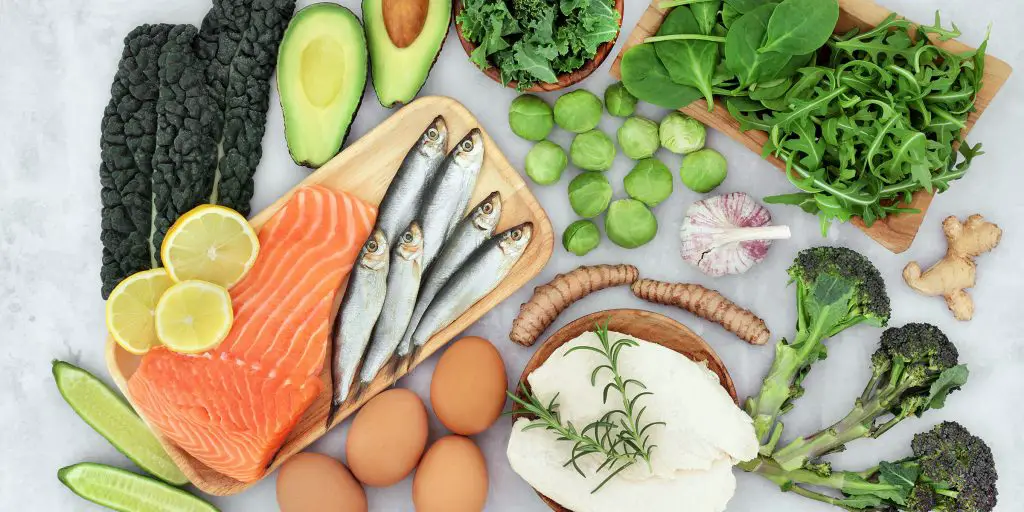In the realm of weight loss diets, the ketogenic diet has garnered significant attention for its potential to help individuals shed excess pounds while enjoying a satisfying meal plan. One specific variation of the keto diet that has gained popularity is the 1200-calorie keto meal plan. This article aims to provide a comprehensive guide on how to effectively implement a 1200-calorie keto meal plan to support weight loss.
Understanding the Ketogenic Diet
Before delving into the specifics of a 1200-calorie keto meal plan, it’s essential to grasp the fundamentals of the ketogenic diet itself. The primary goal of the keto diet is to induce a state of ketosis in the body, where it relies on fat for energy instead of carbohydrates. To achieve this, the diet focuses on a high-fat, moderate-protein, and very low-carbohydrate intake.
The Science Behind Ketosis
Ketosis occurs when the body’s glucose reserves are depleted, forcing it to break down fats into ketones, which can be used as an alternative fuel source. This metabolic state has been associated with several health benefits, including weight loss, improved insulin sensitivity, and increased mental clarity.
The 1200-Calorie Approach
A 1200-calorie keto meal plan is a restrictive yet effective way to promote weight loss. By limiting daily caloric intake to 1200 calories, individuals can create a substantial calorie deficit while still maintaining the principles of a ketogenic diet. Here’s how to structure a 1200-calorie keto meal plan:
Breakfast (300 Calories)
Scrambled eggs with spinach and feta cheese
A side of avocado for healthy fats
A cup of black coffee or herbal tea
Lunch (400 Calories)
Grilled chicken breast with a side of broccoli and cauliflower
Olive oil dressing for added fat
A small serving of mixed berries for dessert
Snack (100 Calories)
A handful of mixed nuts (e.g., almonds, walnuts)
A piece of string cheese
Dinner (400 Calories)
Baked salmon with a lemon butter sauce
Steamed asparagus with olive oil
A side salad with greens, cucumbers, and a keto-friendly dressing
Snack (100 Calories)
A few slices of cucumber with cream cheese
Benefits of a 1200-Calorie Keto Meal Plan
Effective Weight Loss: A 1200-calorie keto meal plan creates a calorie deficit, which is essential for weight loss. Simultaneously, the ketogenic aspect of the diet promotes fat burning.
Appetite Control: The high-fat and moderate-protein content of the diet helps keep you feeling full and satisfied, reducing cravings.
Steady Energy Levels: While on a ketogenic diet, the body’s reliance on ketones provides a consistent source of energy, preventing energy crashes.
Improved Metabolic Health: Ketosis has been linked to improved insulin sensitivity, potentially reducing the risk of type 2 diabetes.
Potential Challenges
Nutrient Deficiency: A 1200-calorie diet can be challenging to meet all nutritional needs. It’s crucial to focus on nutrient-dense foods and consider supplements if necessary.
Keto Flu: Some individuals may experience “keto flu” symptoms, such as fatigue and headaches, when transitioning into ketosis. Staying hydrated and increasing electrolyte intake can help alleviate these symptoms.
A 1200-calorie keto meal plan can be an effective tool for weight loss when executed correctly. However, it’s essential to consult with a healthcare professional or a registered dietitian before embarking on any restrictive diet plan, especially if you have underlying health conditions. With careful planning, dedication, and an understanding of the principles of the ketogenic diet, you can unlock weight loss success with a 1200-calorie keto meal plan.
Tips for Success
To make the most of your 1200-calorie keto meal plan, here are some additional tips and considerations:
Stay Hydrated:
Proper hydration is essential on any diet, but it’s especially crucial when following a ketogenic plan. Drink plenty of water throughout the day to stay hydrated and support your body’s metabolic processes.
Monitor Your Macros:
Keep a close eye on your macronutrient ratios—aim for approximately 70-75% of calories from fat, 20-25% from protein, and less than 10% from carbohydrates. This balance is key to achieving and maintaining ketosis.
Choose High-Quality Foods:
Opt for high-quality sources of fat and protein, such as grass-fed meats, wild-caught fish, organic vegetables, and healthy fats like avocado, olive oil, and coconut oil. This ensures that you’re nourishing your body with the best nutrients possible.
Be Mindful of Hidden Carbs:
Even seemingly healthy foods can contain hidden carbohydrates. Read labels carefully, and be cautious of condiments, sauces, and processed foods that may sneak in unwanted carbs.
Listen to Your Body:
Pay attention to your body’s hunger and satiety cues. It’s essential to eat when you’re hungry and stop when you’re satisfied, rather than adhering to a strict schedule.
Plan Your Meals:
Preparation is key to success on a 1200-calorie keto meal plan. Plan your meals in advance, and consider batch cooking to have keto-friendly options readily available.
Include Fiber:
While the keto diet is low in carbohydrates, it’s still important to incorporate fiber-rich vegetables like spinach, kale, and broccoli to support digestive health.
Seek Support:
Consider joining a keto support group or seeking guidance from a registered dietitian who specializes in ketogenic diets. They can provide personalized advice and help you navigate any challenges you encounter.
Potential Side Effects
It’s essential to be aware of potential side effects that some individuals may experience when following a ketogenic diet:
Keto Flu: As mentioned earlier, the keto flu can lead to symptoms like fatigue, headaches, and nausea during the initial stages of the diet. These symptoms are usually temporary and can be managed with adequate hydration and electrolyte intake.
Digestive Changes: Some people may experience changes in bowel habits when transitioning to a keto diet. This can include constipation or diarrhea. Increasing fiber intake and staying hydrated can help alleviate these issues.
Electrolyte Imbalance: Ketosis can lead to increased excretion of electrolytes like sodium, potassium, and magnesium. It’s essential to maintain proper electrolyte balance through diet or supplements.
A 1200-calorie keto meal plan can be a powerful tool for weight loss when executed with care and attention to nutritional balance. However, it’s not suitable for everyone, and individual results may vary. It’s crucial to consult with a healthcare professional or a registered dietitian before starting any restrictive diet plan, especially if you have underlying health conditions or concerns.
Remember that sustainable weight loss and overall health are achieved through a combination of a balanced diet, regular physical activity, and a healthy lifestyle. The 1200-calorie keto meal plan can be a valuable component of your weight loss journey, but it should be used as part of a broader strategy to achieve and maintain your desired health and fitness goals.




